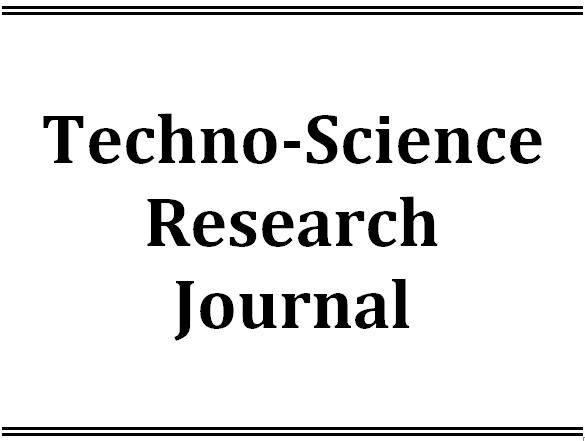Latest Issue
The Negative Experiences of Low-Income Citizen Commute and Their Intentions Toward Public Bus in Phnom Penh
Published: December 31,2025Reliability Study on the Placement of Electric Vehicle Charging Stations in the Distribution Network of Cambodia
Published: December 31,2025Planning For Medium Voltage Distribution Systems Considering Economic And Reliability Aspects
Published: December 31,2025Security Management of Reputation Records in the Self-Sovereign Identity Network for the Trust Enhancement
Published: December 31,2025Effect of Enzyme on Physicochemical and Sensory Characteristics of Black Soy Sauce
Published: December 31,2025Activated Carbon Derived from Cassava Peels (Manihot esculenta) for the Removal of Diclofenac
Published: December 31,2025Impact of Smoking Materials on Smoked Fish Quality and Polycyclic Aromatic Hydrocarbon Contamination
Published: December 31,2025Estimation of rainfall and flooding with remotely-sensed spectral indices in the Mekong Delta region
Published: December 31,2025Bus Arrival Time Prediction Using Machine Learning Approaches
-
1. Department of Applied Mathematics and Statistics, Institute of Technology of Cambodia, Russian Federation Blvd., P.O. Box 86, Phnom Penh, Cambodia
Received: July 12,2024 / Revised: August 20,2024 / / Accepted: August 31,2024 / Available online: April 30,2025
Efficient public transportation systems are critical for urban mobility, requiring precise bus arrival time predictions to enhance service quality and passenger satisfaction. This study thoroughly investigates predictive modeling utilizing machine learning methodologies to forecast bus arrival times along a specific route in Phnom Penh, Cambodia. The dataset contains historical bus arrival data from a specific route, including journey duration, hour of day, day of the week, distance, speed, current bus stop, next bus stop, and weather conditions. The predictive models of this research are built using machine learning methods such as linear regression, XGBoost, support vector machine (SVM), k-nearest neighbors (KNN), and artificial neural network (ANN). These algorithms are used to create prediction models, which are fine-tuned to yield the most accurate estimates of bus arrival times. The usefulness of these models is systematically tested using common performance metrics such as the Mean Absolute Error (MAE), Root Mean Square Error (RMSE), and Mean Absolute Percentage Error (MAPE), offering a full assessment of predicting. Extensive experimentation data shows the best performance of XGBoost model, which consistently outperforms other machine learning methods in accurately estimating bus arrival times, with an MAE of 16 seconds, an RMSE of 28.03 seconds, and a MAPE of 2.61%. Our findings contribute to the development of predictive modeling tools in urban transportation planning and management. This study provides a vital tool for improving the performance and sustainability of Phnom Penh’s public transit systems by using the power of machine learning and considering a wide range of parameters, including those not covered by traditional datasets.

